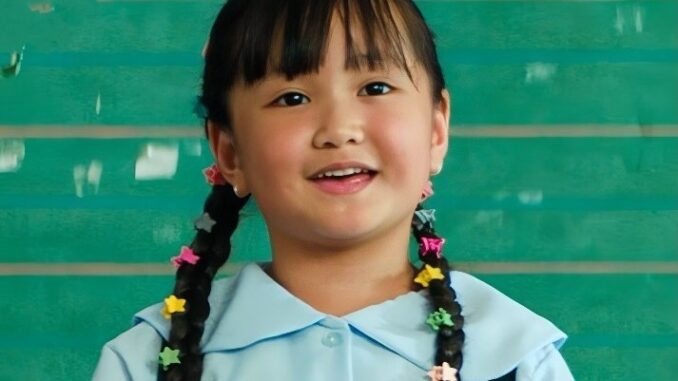
The Filipino-Korean family drama Mujigae, directed by Randolph Longjas, is a story that every mother can relate. And paraphrasing his words, Mujigae is for all mothers, including those who don’t want to be mothers and those who want to be mothers but cannot.
“I’m not here to tell people how to feel, but I believe there will be moments in the film that stay with them long after they leave the theater. It’s a movie for everyone,” he said.
“It’s been a while since I worked on a feature film, and this project feels like reliving my first experience. It carries a lot of emotional weight for me,” Longjas, who directed a full-length feature for the first time in seven years, said.

He added that working on Mujigae allowed him to reconnect with the essence of storytelling, particularly in portraying the innocence of a child “navigating difficult circumstances.”
Longjas expressed his appreciation for the cast and crew who helped bring his vision to life.
“We faced a lot of challenges along the way, but we persevered. The process reminded me of seeing the rainbow after a storm,” he remarked.
Talking about his approach to working with child actors, he shared, “I wanted them to own their roles. I didn’t just dictate what I wanted but encouraged them to find their characters. It was amazing to watch them stay in character even after the cameras stopped rolling.”
Produced by Madonna Tarrayo, Mujigae is hitting the theaters nationwide on Wednesday, Oct. 9, exclusively at SM Cinema.
The film tells the story of Mujigae, a lively five-year-old orphan, played by rising star Ryrie Sophia, who finds an unexpected mother figure in her estranged aunt, Sunny, portrayed by Alexa Ilacad. Alongside them is Korean actor Kim Ji-soo, now part of GMA’s Sparkle roster.

The film also features a special appearance by comedienne Rufa Mae Quinto and is supported by an ensemble cast, including Richard Quan, Kate Alejandrino, and Cai Cortez.
Set against the backdrop of both the Philippines and South Korea, Mujigae follows the journey of a young girl after she loses her mother. The half-Korean, half-Filipino Mujigae is brought to the Philippines, where she is cared for by her aunt. The film explores themes of grief, family, and the cultural challenges that come with being raised between two worlds.
The film’s trailer has already garnered significant attention online, with many viewers anticipating a deeply emotional experience. One scene that has resonated with audiences shows Mujigae pleading with her aunt, saying, “Bad ka, Tita Sunny! Ba’t mo ‘ko ipapamigay?” (You’re bad, Aunt Sunny! Why are you giving me away?). The trailer hints at the tension between family responsibilities and personal desires, themes that the director believes will strike a chord with viewers.
Tarrayo shared her own insights on the project saying that the story’s message about family had a personal impact on her.
“Coming from a family that’s always been close-knit, this film’s idea of finding family in unexpected places hit home for me,” she said.
Tarrayo believes that family isn’t limited to blood relations but can be found in friendships, work relationships, or even with pets.
“Mujigae represents that connection. Her love brings people together, even through difficult times,” she added.
Tarrayo, who has over 37 years of experience producing content across various platforms, emphasized that “Mujigae” was made to create a unique cinematic experience.

“Every film deserves to be seen on the big screen. That’s what we aimed for with this project—to create something that feels both intimate and expansive,” she explained.
She also commented on the relevance of the film in today’s landscape, noting that her team always strives to stay ahead of trends.
“We’re constantly evolving. Whether it’s an ad, a series, or a film, we’re always looking at what resonates with audiences today,” Tarrayo said.
Kim Ji-soo, who portrays Mujigae’s biological father in the film, re-enters the protagonist’s life, leading to moments that will challenge the idea of what it means to be a family. As the story unfolds, audiences will witness the choices Mujigae faces as she deals with the idea of having two homes, a theme central to the film’s emotional core.


Be the first to comment